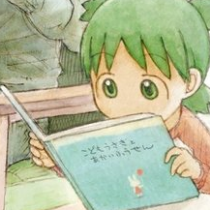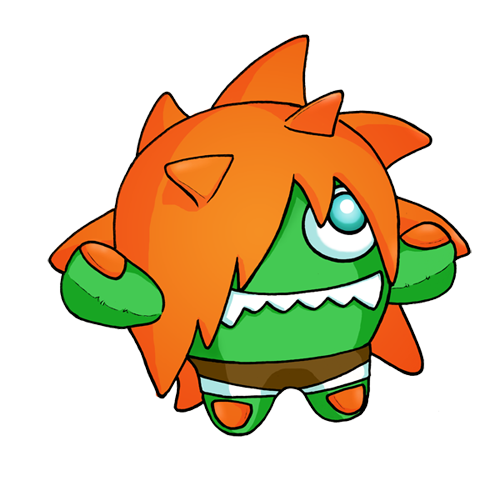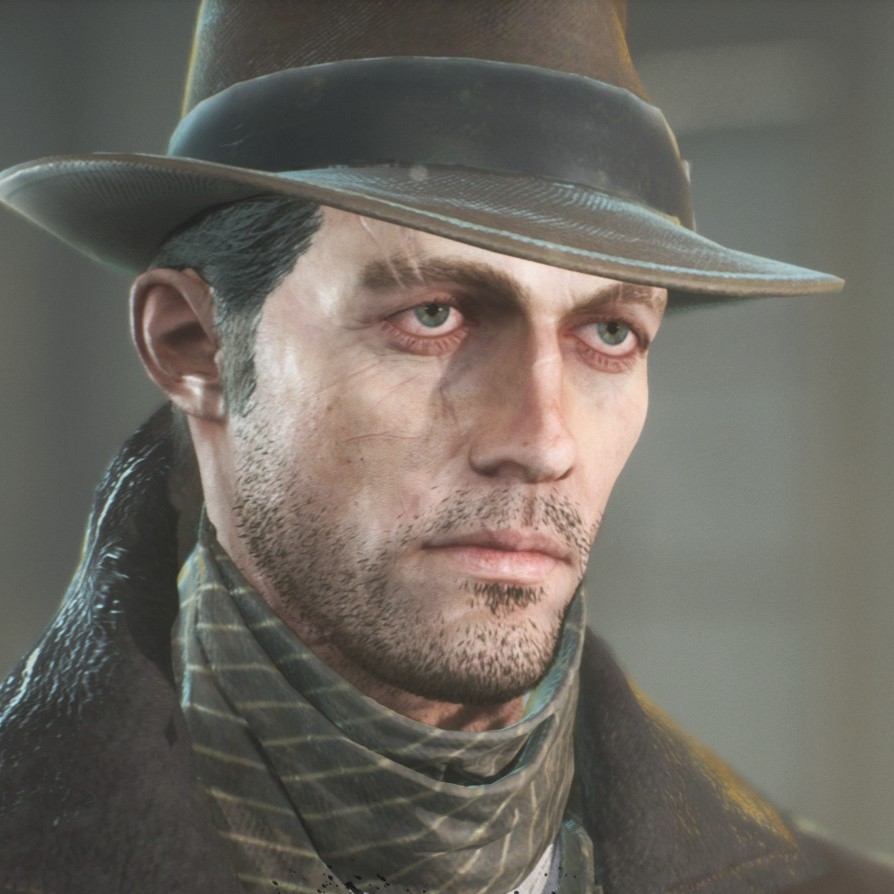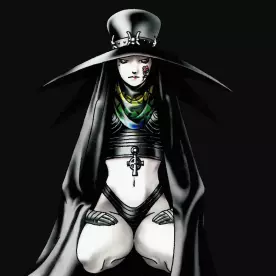Sales follow the tradition of supply and demand. Products come out at their highest price because of expectations and hype. Then, as interest wanes, the publisher continues to make some sales by reducing price to tempt the less interested parties.
But this isn’t the formula for all games. While we might agree that games from 2000 or even 2010 are “showing their age”, at this point 5 to 8-year-old games are less and less likely to be seen as ‘too old’ by comparison to hot releases. Some publishers have picked up on that theme, and doubled down on the commitment to the idea that their games have high longevity and appeal; making the most of their capitalistic venture for better or worse.
I recently was reminded of an indie game I had put on my wishlist several years back, but never ended up buying because it simply had never gone on sale - but looking at it now, not only did it maintain extremely positive user reviews, I also saw that its lowest all-time price was barely a few dollars off of its original price.
In the AAA space, the easiest place to see this happening is with Nintendo. Anyone hoping to buy an old Legend of Zelda game for cheap will often be disappointed - the company is so insistent on its quality, they pretty much never give price reductions. And, with some occasional exceptions, their claims tend to be proven right.
In the indie space, the most prominent example of this practice is Factorio, a popular factory-building game that has continued receiving updates, and has even had its base price increased from its original (complete with a warning announcement, encouraging people to purchase at its lower price while it’s still available).
Developers deserve to make a buck, and personally I can’t say I’ve ever seen this practice negatively. Continuing to charge $25 for a good game, years after it came out, speaks to confidence in a product (even if most of us are annoyed at AAA games now costing $70). I sort of came to this realization from doing some accounting to find that I’d likely spent over $100 a year on game “bundles” that usually contain trashy games I’m liable to spend less than a few hours in.
For those without any discussion comments, what games on Steam or elsewhere have you enjoyed that you’ve never seen get the free advertising of a “40% off sale”?
For me, the only reason to jump on a game early is if it’s necessary for there to be a thriving multiplayer community to enjoy the game. That’s something you would miss out on by waiting for a sale. That early stage, where everyone is still figuring out how the game works and finding new strategies, can be fun. But I rarely play multiplayer games now, so I just skip that and I don’t mind.
If it’s a singleplayer game, there’s no reason to jump on it early – and certainly not to enjoy it as a technical spectacle. It’ll look just as good five years from now.
I remember replaying the original Half-Life in 2008 for its ten year anniversary, and thinking, “This is still fun, but the graphics are almost distractingly outdated.” But when I replayed the original Mass Effect from 2007 just a couple years ago – which was more than ten years old then – I thought it looked just fine.
I would argue there’s some merit to catching the cultural “wave” of a new AAA release every now and again.
Obviously I don’t do it often, but I recently picked up Baldur’s Gate 3, and it’s been fun to talk to people about it at work and such.
That’s a really good point. Sometimes the fun you can have with the game’s “multi player” community isn’t in the game itself.
Baldur’s Gate 3 is probably the best example I can think of. (And I don’t have it, and it is really tempting for the reason you just gave.) I actually overheard two people talking about it at a coffee shop today, and three people talking about it on the train a couple weeks ago. I can’t think of any other game that has been like this.
The late 90s and early 2000s were a time of rapid increases in game graphics.
We went from DOOM in 1993 with sprite enemies, abstract textures, and technical limits like not even being able to have second story rooms on top of each other to Half Life in 1998 with full 3D characters and objects, physics, and much higher resolution textures.


Jumps in graphics back then could be huge. As graphics get better though, improvements on them become diminishing returns. It stops being going from 2D to 3D or going from block head models with textures pasted on to modeled faces, and starts becoming things like subcutaneous light scattering. Things will keep looking better and better but we’ve long ago hit a baseline with graphics.
Mass Effect was made on Unreal 3. While we are currently on Unreal 5, there have been lots of games released in the intervening years that either used Unreal 3 or a modified version of it.
Yeah, while there is an improvement in graphics, it largely plateaued after the PS3/360 “HD” era. We’re fast approaching a time when a 20 year old game will still look pretty good by modern standards instead of hopelessly outdated.
We’ve also reached a point where the novelty of ultra realism has worn off. People expect certain AAA games to look realistic, but nobody is wowed by it anymore.
(Anecdote time: Personally the last time I was wowed by realistic graphics was Battlefield 3. The Frostbite 2 engine was a noticeable and impressive step up, but ever since then I haven’t felt a sense of visceral awe even if I know graphics keep getting better).
In my mind the graphics themselves barely matter as much as aspect ratio, controls (for some genres), and stability on modern hardware when it comes to judging if a game is “hopeless outdated”.
Since this comment chain started with Half-Life, I admit there’s no way around it looking dated, but it doesn’t hurt my eyes or confuse me as some really old games do (Goldeneye 64 sadly falls into this category). I understand what the game is showing me, and the gameplay, art direction, and tone hold it up for me.
The last time I can recall being wowed by graphics was when I finally got an HDTV in 2008 and saw Oblivion on it (the environment, not the ugly lump of clay people). The jump to HD was huge, but ever since then it’s been incremental advancements.
But this isn’t the formula for all games. While we might agree that games from 2000 or even 2010 are “showing their age”, at this point 5 to 8-year-old games are less and less likely to be seen as ‘too old’ by comparison to hot releases.
As someone that grew up in the '80s and '90s, it’s wild how much different the pace of change in games was then compared to now.
In 1991 I was playing NES games and 256-color VGA MS-DOS games, in 1998 I was playing Half-Life. Every single thing about the experience of video games changed in that span.
In 2017 I was playing Breath of the Wild, in 2024 I’m playing more or less the same game in Tears of the Kingdom.
Well, that is a sign of the medium maturing. We’ve figured out most basic technological limitations and many design conventions to make games that are as close to the vision of the creators as we want them to be. Until some new great discovery drastically changes how games are made, now it’s just a matter of building up on existing ideas, with new twists.
To be fair, emulation and patching is even improving on late 90s to early 10s console games. Sure, you can’t evade hardware limitations, but having, for example, ps2 games not slowing down on a CRT with weird motion blur and giving you a big headache makes for an already much more compelling experience.
Any sort of fighting game if you’re planning to play online. It doesn’t matter how cheap Rivals of Aether or Street Fighter 6 is, if you’re not playing near release you’ll only be fighting against people with 500+ hours of experience.
And this is why I hate playing fighting games (and most versus games) online.
I mostly agree, but I feel like Street Fighter 6(Going to throw Tekken 7/8 out as an option as well) has a good enough ranking system that you will be able to get people around your skill level years down the line. I didnt jump on Street Fighter 5 till Arcade Edition released, and never had an issue with learning and getting matches in Ranked, and I feel like that will be the same for SF6.
You will have to catch up with knowledge of characters, but I feel lower ranks are much easier in that regard.
However, the Street Fighter 6 Battle Hub is merciless and full of Master ranked players, and that is where turning up late is going to be painful and soul crushing(and I will be one of those people contributing to that).
This also highlights a huge advantage that popular fighting games have: the constant arrival of new players. You don’t want to be the only person who picked up the game that week.
Thankfully, there are multiple really popular fighting games out right now (at least, really popular compared to how the genre was doing a few years ago), which is great.
I think the main reason more players become patient gamers is due to more and more games release broken and buggy. So they have to wait to see if the game gets fix or not.
The main reason more people are becoming patient gamers is people are generally more broke and stressed than they have been in the past.
I think the main reason more players become patient gamers is due to more and more games release broken and buggy.
Yes this is also a reason but the reason behind that is that less and less money and creative control is being given to the workers who are actually doing the labor of making games.
We are in the middle of a massive class war being fought aggressively by the rich against the rest of us and we need to keep that front and center in every context that is affected by it. When your favorite game company gets bought out by some massive hydra of a company that promises nothing will change and then proceeds to gleefully harvest the spinal cords of all the former employees with its tentacles like a mortal kombat finishing move, remember the reason. This is an economic war and your favorite game company was just another battlefield torn to pieces.
I’ve heard that for smaller studios it is incredibly important to get those early sales. Their margins are often very small (if they exist at all) so getting early and continued support is often vital.
Indie games are pretty much the only ones I still buy on release.
Every game made by Nintendo in the last 20 years. They never go on sale.
The patient Nintendo gamer has to wait for an emulator and raise the Jolly Roger.
In all seriousness Nintendo games for previous gen (Wii U) are roughly half current gen. In the current gens store. Go back further and they just don’t support it.
The real problem now is all console companies just close the store on their old consoles so physical media is the only purchase route that lasts if you want to stay legal and that has scarcity value in the end.
The prospect that companies will just keep closing stores for each generation and letting games disappear makes me earnestly appreciate piracy.
Jail breaking is an option too for the Switch and I’ve been happy with the experience. Even paying more for a physically modded oled version ends up paying for itself quick considering the price of games.
I love that idea, but I’m not giving up my 1440p60!
Emulation is king when it doesn’t have bugs for sure. I’ve been running more games through emulation over the switch as it’s gotten better for that beautiful fps and resolution jump.
Dat OLED tho.
Patient cat here
I just download em. SMRPG worked perfectly on day one, which was nuts. TotK took some time, but now it’s 1440p/60 and mods! MODS!
Not officially or digitally perhaps, I’ve picked up plenty of discounted Mario games online over the years
Flash-in-the-pan multiplayer games that may not have anyone left to play with if you don’t join in while the pan is still hot. Heck even ones that stick around a while just get harder to start in when most players have built up skill in the game and know all the little nuances. It’s a lot easier to grow along with everyone when a game first drops, IMO if you care at all about the competitive side.
It would be interesting to see how many ‘patient gamers’ are actually into multiplayer games at all because of this reason. I wouldn’t call myself one per se, but I probably fit the criteria, and most of the games I wait to come on sale are single player campaign.
I’m patient for SP games, but I also sometimes jump on bandwagons for MP games from time to time. Especially when they’re cheap, like Lethal Company or Fall Guys.
I’ll just be over here sobbing in Absolvers empty arenas. I really enjoyed that game. And then it just died.
Oh, damn. I still have that one on my wishlist.
Granted you have to have VR for it, but Beat Saber has pretty famously never gone on sale and never will, but it’s an unbelievably good game that super worth it.
This reminds me I need to start playing beat saber again.
Factorio is another game considered a modern masterpiece and the leader of its genre but they have flat out said they will never put it on sale.
Which is honestly fine because it’s $30 and you’re generally considered “new to the game” until you crack 1,000 hours.
I spend as much time in one play through the free factorio demo as I’ve played in some AAA games.
In the hours entertained per dollar doesn’t, factorio is stupid cheap.
I personally prefer pistol whip to beat saber, but I understand the appeal for it.
In addition to this there is also occasionally the case where playing an extremely popular game right at launch lets you participate in the zeitgeist in a way you can’t really do if you wait a year and a half for a sale. I imagine whether this matters to you is extremely subjective, but I remember this being a big thing for me with both Elden Ring and BG3; being able to participate in discussions and discovery at the point in time when not everything about the game has been mapped out. Watercooler talk or chatting on Discord with others and sharing your respective findings during that early time when the Wikis aren’t filled in yet.
While that’s true, specifically avoiding the zeitgeist (read: hype) is the stated goal for patient gaming communities (at least the ones on Reddit and here on Lemmy at [email protected]). It’s why people pay too much for games that are released unfinished in the first place. And there’s always a popular game out or right around the corner.
The specific game that gave me the idea for this post was Freedom Planet 2. I remember getting the original as part of one of the early Humble Bundles, and enjoyed it, but never felt compelled to try the sequel.
Something I’ve been missing is having more game stories with fully “melodramatic” character acting - where character A is gasping in tears over the injuries to character B, and won’t ever forgive ruthless villain Y. That was something I remembered FP1 for, for better or worse, and apparently from reviews they improved their craft a bit for the sequel.
FP2 was a fantastic game. I loved it. I also liked Crosscode and Coromon. Both have the pixel look that I love and both were fun to me.
I’ve played games that thanks to patching, do not resemble the game I played any-more. TF2 is a good example of that, I can’t go back and play the game I played, it doesn’t exist any-more.
I think they made a classic mode, but that’s just one stage, I want to play the game I played the most which was a few updates in, but before it got silly.
Project Zomboid is in this category
I think the rare missed game via patience is very worth the ability for all of us to keep pressure on game companies to keep gaming prices down/lower, by waiting for sales/out-of-early-access, etc.
Voting with your wallet does work sometimes.
I get that to some degree, but also look at it this way.
Developer A spends 10 years and lots of people’s time developing a heartfelt, memorable game, and prices it at $25 - keeping it at that price no matter what changes. Meanwhile, Developer B develops dozens of cheap games chasing crummy junk trends, and charges $60 initially for them, and discounting them down to $10 after two months. Theoretically, Developer A should deserve more of their money. But, many people will often see “83% off” and go for Developer B, even though the game refusing discounts is worth far more of people’s time.
I do think some people only really focus their wallet-voting in one direction. It should be not just avoiding expenditure on bad games, but also volunteering it on good games.
It should be not just avoiding expenditure on bad games, but also volunteering it on good games.
I definitely agree on purchasing good games, but only as long as they’re reasonably priced.
Owning physical editions of games can be a problem for patient gamers. As digital distribution continues to expand (even in previously resistant markets such as Japan), we’re again getting to a point where pre-orders may be necessary if you want a physical copy for small releases.
NIS America has also increased prices on their games, although, unlike Factorio, they have sales. Also unlike Factorio, they don’t spout nonsense like “inflation” for the increase. That doesn’t track on a game that already has virtually zero marginal cost and sunk development costs now that development has moved to a paid expansion. Dude would have been better off just announcing the increase and keeping his mouth shut on the rest.
I am currently waiting for Alan Wake 2 to go on sale on Xbox. In the meantime I’ve been catching up with their older games - I’m in the post-game for Control and about 1/2 through the original AW.
Also, the new Prince of Persia is not out yet but will probably be leaving it until it goes on sale. To be honest there are only a few developers that I would buy new games from: first-party Nintendo, some Sega devs (Vanillaware, Atlus).














